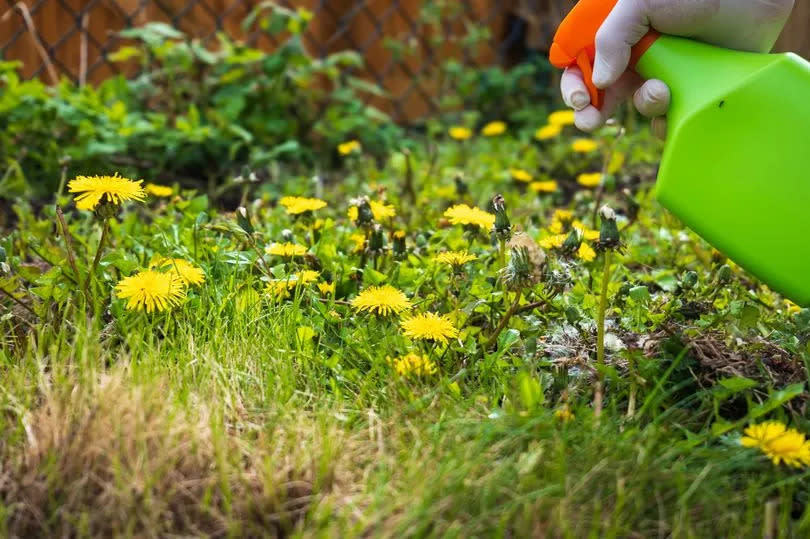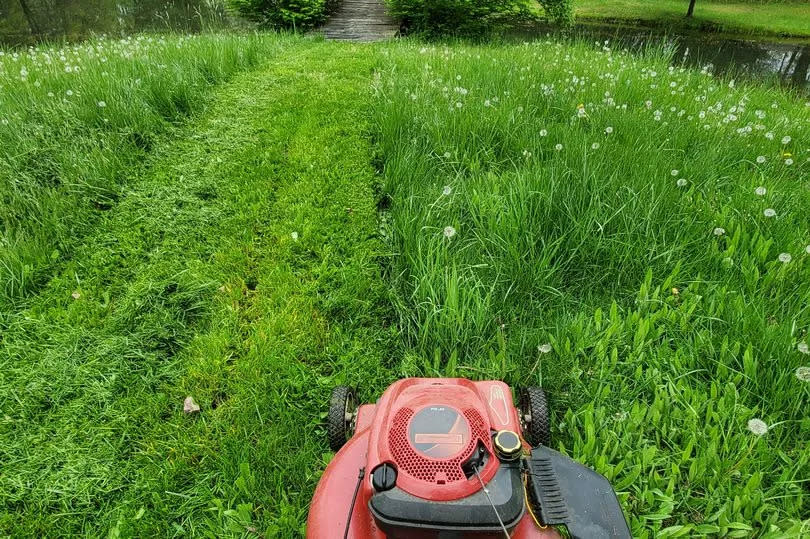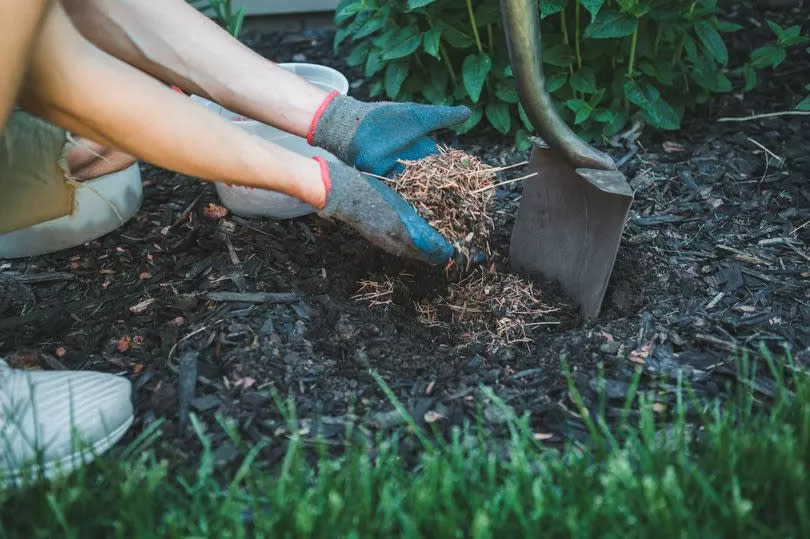Four handy ways to remove dandelions without turning to chemicals or white vinegar

Weeds, especially ones like dandelions, can be a right bother during the spring as they multiply rapidly and snatch nutrients from your lawn, but thankfully, getting rid of them is straightforward.
It's always recommended to avoid using strong chemicals in your garden to ensure the local wildlife continues to thrive, however DIY solutions such as a white vinegar concoction shouldn't be employed on your grass because it wreaks havoc with healthy blades.
But Alec McClennan, an organic lawn care expert from Good Nature, has highlighted several gardening strategies for ousting dandelions from your lawn while maintaining its verdant splendour, reports the Express.
Ways to dispatch dandelions without hurting your grass
Choose the appropriate fertiliser
At this time of year, dandelion weeds are often a nuisance, as the rising temperatures provide the perfect conditions for plants to flourish and increase their presence.
Keeping seeds from sprouting is best achieved by deploying corn gluten meal on your green space which will create an obstruction not letting new weeds to sink roots whilst giving nourishment to your grass.
Alec advised: "Use an organic fertiliser that feeds the soil and may help minimise new weed germination, like corn gluten meal. [It] is an excellent slow-release natural fertiliser that contains about nine percent nitrogen as a protein."
"In addition, corn gluten meal has been shown to suppress new seed germination to some degree. That means that it will help minimise new seeds from turning into plants."
Raise the blade on your mower

Forget about giving your lawn a close shave - keeping the blades higher could stop dandelions from even appearing. Taller grass can block sunlight and hinder weed seeds from sprouting.
Alec says this will also "keep your lawn greener". It encourages the grass to develop deeper root systems which results in healthier grass and a stronger lawn.
This leads to thicker growth and gives your grass a competitive edge against weeds where dandelions are likely to naturally die off. Alec went on to say: "Mowing high can help crowd out existing weeds provided that you have grass types that will stand up and fight."
"If your grass lays over and won't stand up, mowing high won't help as much. You still don't want to scalp the lawn, but having the right grass types makes mowing high much easier."
Switch to organic weed control
Pest control doesn't have to be harmful to the environment: natural alternatives exist that can tackle not just weeds, but moss, algae, ground-ivy, and lichens on lawns as well.
Alec commented: "Captain Jack's Lawnweed Brew is made from naturally occurring Iron (FeHEDTA) and is people and pet-safe. It will weaken and kill many broadleaf weeds like dandelions, without killing the grass. Because it is naturally occurring it is ok to seed the same day you apply it."
A critical component of Captain Jack's Lawnweed Brew is iron, a vital element for maintaining grass health while also suppressing weed growth. The iron disrupts the leaves' energy production process, causing them to wilt and eventually die.
Mulching is another key strategy

For garden enthusiasts, mulching involves spreading organic material over the soil to nourish plants. But notably, mulching also makes an effective weed suppressant.
Spreading leaves, bark or straw across your lawn could act as a physical deterrent, hindering water and sunlight access for weed seeds that may be sprouting in your lawn.
Ideally, apply your mulch during the cooler months in spring or autumn. Autumn is often preferred because of the greater availability of leaves which can be used for mulching.
Alec added: "You may have to wait a bit on this, but studies at Michigan State have shown a significant reduction in dandelions on grass that had leaves mulched into it during the [autumn]."
"So this year, instead of raking your leaves to the curb, run over them with your lawn mower until they're all chopped up and leave them on your lawn."
Don't miss the latest news from around Scotland and beyond - Sign up to our newsletter here.

 Yahoo News
Yahoo News 
